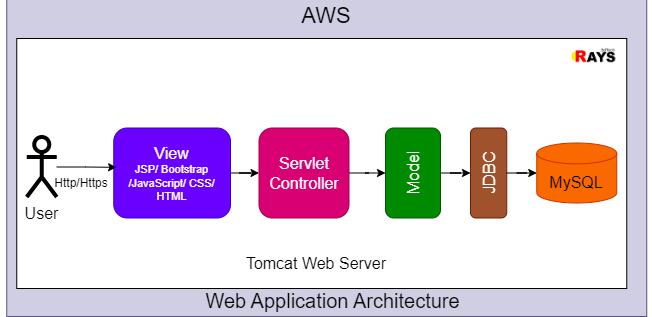Module 1: Core Java
-
Week 1: Introduction to Java
- Overview of Java and its history
- Setting up the Java development environment
- Basic syntax, data types, and variables
- Operators and expressions
-
Control flow statements (if, switch, for, while,
do-while)
-
Week 2: Object-Oriented Programming (OOP) in
Java
- Classes and objects
- Constructors and methods
- Inheritance and polymorphism
- Encapsulation and abstraction
- Interfaces and abstract classes
-
Week 3: Core Java APIs and Exception Handling
- String handling
-
Exception handling (try-catch, throws, custom
exceptions)
- Collections framework (List, Set, Map)
- Generics
- I/O Streams (File handling, Serialization)
-
Week 4: Advanced Java Concepts
- Multithreading and concurrency
- Java Networking (Sockets, URLs)
-
Introduction to Java 8 features (Lambdas, Streams,
Functional interfaces)
- Annotations and Reflection
Module 2: Advanced Java
-
Week 5: JDBC and Database Connectivity
- Introduction to JDBC
- Connecting to MySQL database
- CRUD operations using JDBC
- Batch processing and transaction management
-
Using PreparedStatement and CallableStatement
-
Week 6: Servlets
-
Introduction to web applications and HTTP protocol
- Setting up Apache Tomcat
- Writing and deploying servlets
- Handling request and response
- Session management and cookies
-
Week 7: JavaServer Pages (JSP)
- Introduction to JSP
- JSP lifecycle
- Scriptlets, expressions, and declarations
- JSP directives and action tags
- MVC pattern with JSP and Servlets
Module 3: Web Technologies
-
Week 8: HTML, CSS, and Bootstrap
- Basics of HTML and CSS
- Introduction to Bootstrap framework
- Creating responsive web pages
- Integrating Bootstrap with JSP
- Form design and validation
-
Week 9: Project Database Design and Integration
- Designing the project database schema
- Setting up MySQL database
-
Integrating MySQL with the web application using
JDBC
- Creating DAO (Data Access Object) layer
-
Introduction to Hibernate for ORM
(Object-Relational Mapping)
Module 4: MVC Web Project Development
-
Week 10: Capstone Project Development
- Requirement analysis and project planning
- Designing the application architecture
- Implementing core functionalities
-
Developing controllers and services in Servlets
- Creating views with JSP and JSTL
- Handling form submissions and validations
- Integrating frontend and backend
- Testing and debugging
-
Week 11: Deployment and Cloud Hosting
- Introduction to cloud computing and AWS
- Setting up an AWS account
-
Deploying the web application on Apache Tomcat
- Configuring AWS EC2 instance for deployment
Module 5: Hands-On Project Work
-
Week 12: Review and Assessments
- Code reviews and feedback sessions
- Final assessments and quizzes
- Project showcase
-
Internship completion certificate distribution
Additional Activities:
- Weekly code reviews and feedback sessions
- Pair programming and group discussions
- Regular quizzes and assessments
Outcome:
By the end of this internship program, participants will
have a thorough understanding of Core Java, Advanced
Java, HTML, Bootstrap, JSP/Servlet, MySQL, JDBC,
Hibernate, and MVC-based web project development. They
will gain hands-on experience by working on real-world
projects and deploying them on the AWS Cloud, preparing
them for a successful career in Java development.



